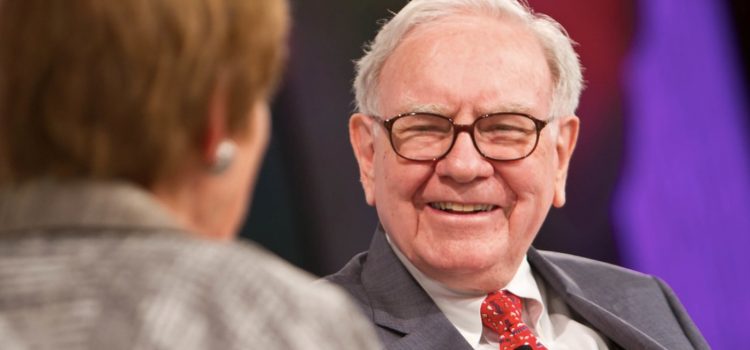

This article is an excerpt from the Shortform book guide to "The Snowball" by Alice Schroeder. Shortform has the world's best summaries and analyses of books you should be reading.
Like this article? Sign up for a free trial here.
What do people have to say about Warren Buffett’s integrity? How has Buffett’s honesty helped him?
Apart from being a successful businessman, Warren Buffett is known to be an honest person. The Snowball by Alice Schroeder highlights his integrity by citing two events where it helped him: the case of the Salomon Brothers and the economic collapse of 2008.
Keep reading to learn more about how Warren Buffett’s integrity has guided him.
Buffett In Crisis: The Strength of Integrity
More than any other financial giant, Warren Buffett was characterized by his simple honesty. While Warren Buffett’s integrity wasn’t a shield against every storm in life, it often provided a guiding star for himself and those around him. Buffett’s integrity enabled him to salvage the Salomon Brothers investment firm and let him speak out as a voice of reason during the 2008 financial crisis.
In 1991, Buffett’s integrity went on the line when Salomon Brothers (which Buffett had rescued in 1986) was caught violating regulations on bidding for government bonds. When it came out that Salomon’s CEO hadn’t reported the misdealings to the Federal Reserve or to the company’s board, the government threatened to cut off Salomon completely, effectively killing the business. Salomon’s management resigned as nearly $150 billion in short-term debt came due. Schroeder recounts that as the most respected investor, Buffett found himself thrust into the role of temporary chairman of the board.
By taking charge of a firm mired in scandal, Buffett risked his hard-won reputation. However, he feared that if Salomon defaulted on its debts, a global financial crisis would ensue. Schroeder says that Buffett begged the government to allow the firm to keep trading in bonds. In return, Buffett instituted a policy of absolute transparency toward the regulators investigating Salomon’s wrongdoing, waiving attorney/client privilege for the company. When Buffett testified to Congress, he took a hardline stance in favor of total honesty and corporate accountability, which prevented Salomon’s total collapse and painted Buffett as a hero in the eyes of many.
(Shortform note: By completely opening Salomon’s doors to regulators, Buffett instituted a policy of transparency that was unheard of at the time and is still rare today. However, unfiltered honesty has modern proponents in the business world. In Principles: Life and Work, Bridgewater founder Ray Dalio espouses his company’s policy of extreme transparency. In Radical Candor, Kim Scott says that organizational cultures based on openness rely on building trust between management and workers while challenging each other with honest criticism.)
The Rise and Fall of Salomon Brothers
Founded in 1910, Salomon Brothers came to prominence years later as a dealer in government securities when the US began to issue bonds in large numbers to finance its entry into World War I. Because Salomon didn’t trade heavily in stocks, it weathered the crash of 1929 better than most other firms. In 1975, Salomon was the primary dealer in bonds for the Municipal Assistance Corporation that was formed to rescue New York City from bankruptcy.
When testifying before Congress in the midst of the Salomon scandal, Buffett expressed his belief that reforms to the brokerage would make it the industry leader in corporate compliance to government regulation. In Nightmare on Wall Street, Martin Mayer argued that Salomon’s misdealings weren’t merely the result of a few bad actors, but were symptomatic of the lax financial regulatory system that prevailed during the 1980s. Salomon’s fortunes briefly rallied in the years immediately after the scandal, but it never regained its prominent position and was later absorbed into Citigroup.
The Collapse of 2008
The global crisis that Buffett feared did come to pass, and while Buffett’s fiscal conservatism protected the wealth of his investors, his status as the richest man in the world put him in a position where his leadership and integrity would be needed to help rescue a market in freefall.
Low interest rates in the early 2000s led to a boom in the housing market, as lenders pushed buyers into taking on debt, then used financial derivatives to spread the risk. These derivatives gave lenders a false sense of security, but Schroder states that in 2002, Buffett called derivatives “time bombs.” In 2007, home loans began to fail, triggering a meltdown in 2008 with the fall of the investment bank Bear Stearns and the federal mortgage companies Fannie Mae and Freddie Mac.
(Shortform note: Financial derivatives are notoriously difficult to explain in layman’s terms. A derivative is a financial product whose value isn’t based on an individual stock, bond, or other financial instrument, but on how that instrument performs over time. In short, a derivative is a bet between two parties on how well a segment of the market will perform. In addition to being complex and hard to understand, derivatives are vulnerable to the market’s emotional volatility because, unlike stocks or bonds, none of a derivative’s value is directly based on any tangible asset.)
Buffett kept a sharp eye on the situation. He declined to bail out Bear Stearns, which Schroeder argues would have been tantamount to throwing money away. As other banks fell like dominos, he did step in to help Goldman Sachs. When Congress refused to pass President George W. Bush’s $700 billion bailout, Buffett appeared on national television and urged them to change their minds. Congress did (although probably not because of Buffett), and his voice became a staple on many news outlets, with his call for rationality and responsible fiscal behavior.
(Shortform note: A detail of the crisis not mentioned by Schroeder but revealed in the HBO documentary Panic: The Untold Story of the 2008 Financial Crisis is that Buffett reached out directly to Treasury Secretary Hank Paulson. Buffett suggested that instead of merely using the newly passed $700 billion Troubled Asset Relief Program to buy up failing loans from banks, the government should invest directly in the banks themselves. The eventual bailouts the Treasury Department enacted were structured along the lines of Buffett’s own deal to save Goldman Sachs.)

———End of Preview———
Like what you just read? Read the rest of the world's best book summary and analysis of Alice Schroeder's "The Snowball" at Shortform.
Here's what you'll find in our full The Snowball summary:
- A biography of one of the wealthiest people in the world, Warren Buffett
- Why Buffett is known for his honesty and wisdom, just as much as his wealth
- How Buffett's life was shaped by his family, his teachers, and the era into which he was born






